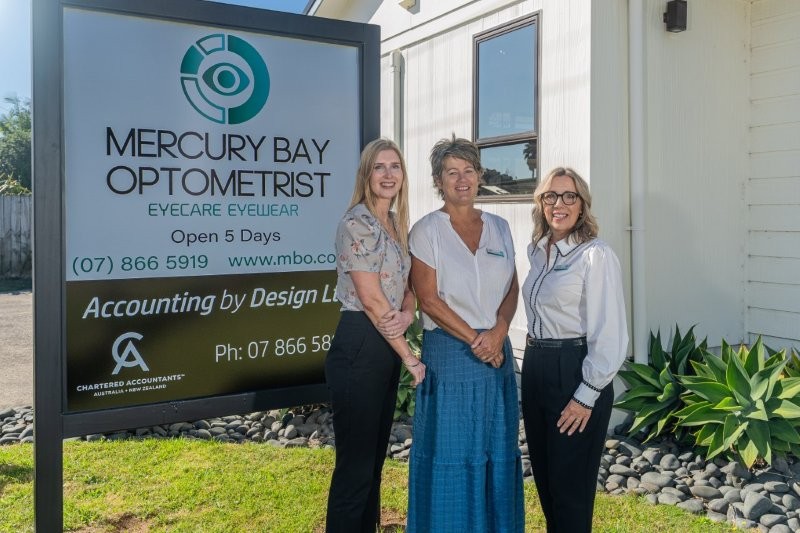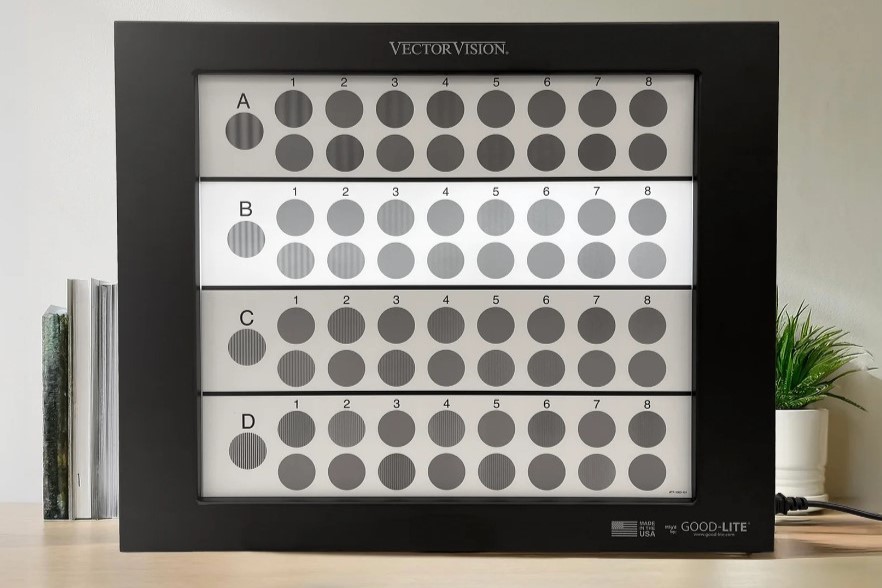Covid-19 Protection Framework and Mandatory Vaccinations Order - Key messages
The following is a special Covid-19 update from the Optometrists and Dispensing Opticians Board (ODOB) 20 January 2022:
With the increased cases of the Omicron variant of Covid-19 detected at the Aotearoa New Zealand border, we thought we will share some of the key messages we have received from the Ministry of Health between mid-December and this week regarding the:
- COVID-19 Public Health Response (Protection Framework) Order of 2021, and
- COVID-19 Public Health Response (Vaccinations) Order of 2021.
Below are key clauses, definitions and summaries of both Orders and how they relate to Allied Health Services.
1. COVID-19 PROTECTION (TRAFFIC LIGHT) FRAMEWORK ORDER OF 2021
The Ministry of Health has not ruled out future localised lockdowns within the Covid-19 Protection Framework, also referred to as the Traffic Lights Framework. Should Omicron make its way into the community, the Covid-19 Protection Framework has provision for local restrictions - whether that is Delta, Omicron, or any other variant. We would therefore encourage you all to familiarise yourself with the COVID-19 Protection Framework Order.
Below are some of the guidance provided by the Ministry of Health, focussing on key clauses and definitions on the COVID-19 Protection Framework as they relate to Allied Health Services. In some instances, these have been further unpacked, as we attempt to understand what this may mean for Optometrists and Dispensing Opticians.
WHAT SERVICES ARE DEFINED AS A "HEALTH SERVICES"
This is explained in clause (5) (1) of the Covid-19 Protection Framework Order, and relevant legislation.
A health service is:
- a service provided for the purpose of assessing, improving, protecting, or managing the physical or mental health of individuals or groups of individuals
- treatment or social rehabilitation, and
- disability support services that includes goods, services, and facilities.
These health services are subject to the rules that apply to “designated premises” under the order (Clause 10).
Do you provide health services at a designated premise?
Clause 10(f) of the Covid-19 Protection Framework Order defines a “designated premise” as premise of health services that are partly or wholly funded by:
- the Ministry of Health
- Oranga Tamariki—Ministry for Children
- the Ministry of Social Development (MSD)
- the Department of Corrections
- a district health board (DHB)
- Veterans’ Affairs New Zealand, and/or the
- the Accident Compensation Corporation (ACC).
Even if you receive such funding from only one patient, your practice is considered a “designated premise”.
What does this mean?
- If you are a designated premise, access must not be denied on vaccination grounds (Clause 31)
- If you are a designated premise, goods/services must not be denied on vaccination grounds (Clausse 32)
- A non-designated premise (premises A) must not deny access to a designated premise (Clause 33). For instance, a mall (premise A) may not deny access to unvaccinated patients/clients that are seeking healthcare services of Optometrists or Dispensing Opticians situated in that mall (premise B).
- COVID-19 Exemptions for health services are set out in Clause 103, and all health services are required to have the following in place:
- A QR code must be displayed in workplaces (Clause 19).
- Workplaces must have alternative contact record systems and processes (Clause 21).
- Business or service must have systems and processes to ensure people entering workplace scan QR code or provide contact record (Clause 22).
- A person must not be denied access to certain premises on vaccination grounds (Clause 31(v)).
- A person must not be denied access to goods or services from certain premises on vaccination grounds (Clause 32(vi)).
- Business or service in control of premises must allow people access to designated premises (Clause 33).
Can I choose not to be a "designated premise"?
Yes, you may.
If you meet the requirements of not being a designated premise, you can lawfully require Covid-19 Vaccination Certificates as an entry requirement to your premises.
Please note, that if you have one patient that is funded from any one of the above streams, your practice is considered a "designated premise".
If you choose not to provide these health service to those patients anymore, the Board would recommend you to consider a practice management plan to ensure there is continuation of care for those (often vulnerable) patients.
Here are some of the steps you can follow:
- If possible, send out letters or emails to patients advising them of your decision, and provide them with alternative healthcare pathways available to them, and what is to happen to their patient records. Alternatively, at the very least, this should be communicated as widely as possible, such as when patients are making appointments, a notice of your decision to be placed at the entrace of your practice, and on your website.
- If possible, the practice owner should attempt to negotiate transfer of healthcare (and the records) to another local practice.
Health providers have a legal responsibility under the Privacy Act of 2020 and Health Information Privacy Code 1994 to ensure that health records are securely stored and are also able to be readily accessed, on written request, by health consumers.
If you are not familiar with these responsibilities or wish to refresh your memory, please visit the website of the Privacy Commissioner. They also have free e-learning modules you can do.
MINISTRY OF HEALTH GUIDANCE FOR ALLIED HEALTH PROFESSIONALS IN THE COVID-19 PROTECTION FRAMEWORK
On 2 December 2021, the Ministry of Health provided a decision flow chart as guidance for Allied Health providers.
Please note though, that should there be any inconsistencies in any communication provided to you, the Covid-19 Protection Framework Order itself is the definitive source of information and will prevail.
2. COVID-19 PUBLIC HEALTH RESPONSE (VACCINATIONS) ORDER OF 2021
WHAT WORK MUST BE CARRIED OUT BY VACCINATED WORKERS?
As you are aware, certain work may only be carried out by vaccinated workers. The Mandatory Vaccinations Order of 2021 specifies who those workers are. This is a public health requirement.
As the order stands, there are some Allied Health workers who are not legally required to be vaccinated under the order. However, employers can also require other work to be done by a vaccinated employee, if a risk assessment identifies this is necessary for work health and safety purposes. That may be the case where the nature of the work itself raises the risk of COVID-19 infection and transmission above the risk faced outside work.
As of mid-December, there is now a new vaccination assessment tool that businesses and service providers can use to decide whether they can require vaccination for different types of work. This is available from Worksafe.
REQUIREMENTS FOR BOOSTERS
On 20 December 2021 Cabinet agreed to reduce the approved booster dose interval of the Pfizer Vaccine (for those aged 18 years and older) from 6 months to 4 months. The reduction in the booster dose interval was approved due to the emergence of the highly infectious Omicron variant and the importance of ensuring a high proportion of people have their COVID-19 vaccine booster dose ahead of winter 2022.
CHANGES TO THE MANDATORY VACCINATION ORDER
There will be changes to the Mandatory Vaccination Order to include boosters. We expect the Mandatory Vaccination Order to come into force before the end of January 2022, and will detail the time frame for all who are covered under the Mandatory Vaccination Order.
Border workers (including those in managed isolation and quarantine (MIQ) facilities), and workers within Health and Disability services to be scheduled first.
While people can have their booster vaccine from 4 months, this will be mandated to be done within 6 months.
The eligibility criteria will be updated to take into consideration boosters for Significant Service Disruption (SSDs) and Temporary Medical Exemption (TMEs).
NON-COMPLIANCE WITH THE VACCINE ORDER
When the Optometrists and Dispensing Opticians Board (the Board) receives any non-compliance information about an individual health practitioner, it is forwarded to the Ministry of Health’s Enforcement team.
The Ministry of Health's Enforcement team will then investigate if there is a breach and will respond accordingly. This may result in an infringement notice being issued to the individual practitioner. The Board will also be notified of any breach and has the ability to take further action which can include referral to a Professional Conduct Committee (PCC) or interim suspension.
The Board has not yet decided whether it will consider any Mandatory Vaccine Order non-compliance infringement orders, or whether it will ask for your vaccination status when issuing annual practicing certificates (APCs). The Board’s decision on this will be communicated early February 2022.
Worksafe will follow-up on any non-compliance by the Person Conducting a Business or Undertaking (PCBU). Both may be investigated for the same breach as they have distinct duties under the Vaccination Order.
RISK ASSESSMENT
Clinical reasoning and risk assessment remain the fundamental principles for considering how to provide care for patients.
Health practitioners will be able to see patients face-to-face if the following processes are in place:
- screening for COVID-19 symptoms prior to face-to-face appointment.
- infection prevention control measures including appropriate personal protective equipment (PPE), where required.
- transmission precaution measures are in place, including the consideration of ventilation.
- keep accurate documentation of appointments to aid contact tracing, if required.
- ensure that your place of work is registered with the NZ COVID Tracer App and that the poster with the unique QR code is clearly displayed at the entrance to your premises.
Note: The COVID-19 Protection Framework Order (clause 31-33) does not bar asking for information about vaccination in the context of clinical discussion. They merely prohibit vaccination status being used as a condition of entry/condition of receipt of service.
PHYSICAL DISTANCING AT YOUR PREMISES
People are not required to maintain physical distance from others in the traffic light system.
However, physical distancing is still worthwhile between people that do not know each other. Try to maximise ventilation along with room and equipment cleaning protocols; and consider your waiting room layout to enable physical distancing.
WHAT DO I DO IF A STAFF MEMBER IS EXPOSED TO COVID-19?
In most instances, fully vaccinated staff can continue working safely, if all requirements set out in the guidance are met, depending on the level of risk assessed.
The Ministry of Health has developed guidance on what to do if a staff member is exposed to COVID-19: What to do when a staff member is exposed to COVID19 guidance document
- It covers the four categories of risk: low risk, moderate risk, high risk and highest risk.
- It explains what to do based on the risk category you select and the vaccination status of your staff member (the guidance covers staff who’re not vaccinated as there may still be instances where staff are not fully vaccinated yet).
The advice is intended to provide an understanding of expected processes, responsibilities and the implications for a clinical practice and service continuity.
3. OTHER RESOURCES
COVID-19 traffic light resources
There are a wide range of posters, videos, and social media tiles available to download online. You can easily download these, including content in 28 languages, by going to the COVID-19 Resource toolkit. You can also send feedback/requests for other collateral from the toolkit or by emailing their development team.
COVID-19: Advice for all health professionals
The Ministry of Health has two webpages that contains guidance and factsheets to support health professionals managing COVID-19:
- Advice for community allied health, scientific and technical providers
- Advice for all health professionals.
What to expect when self-isolating - A patient guide
This resource is a handy one-page guide that you can print (or email) for patients who need to self-isolate at home. Please click here to access.
4. FOR MORE INFORMATION
For more information, please contact Elmarie Stander (Registrar) by email: elmarie.stander@odob.health.nz, or phone: 04 4740705.


























